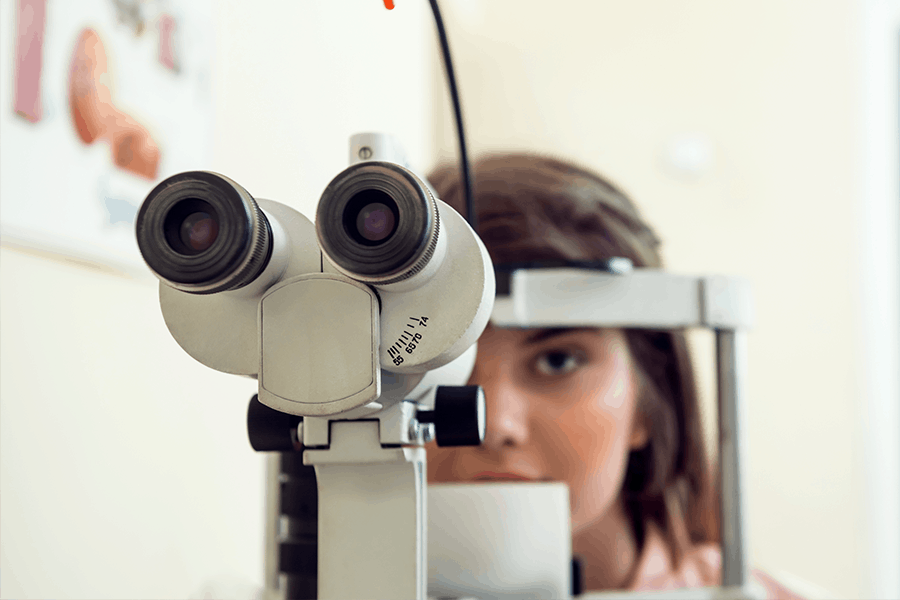 Most people don’t think about the quality of their eyesight until things start to get a little blurry. A National Institutes of Health (NIH) study has found nearly 94 percent of Americans aged 12 and older have good vision. The remaining six percent (14 million people) are visually impaired—of which nearly 11 million have an uncorrected visual impairment like nearsightedness.
Most people don’t think about the quality of their eyesight until things start to get a little blurry. A National Institutes of Health (NIH) study has found nearly 94 percent of Americans aged 12 and older have good vision. The remaining six percent (14 million people) are visually impaired—of which nearly 11 million have an uncorrected visual impairment like nearsightedness.
Whether you wear glasses or have never experienced vision issues, regular eye checks are crucial for early detection and diagnosis of eye conditions, appropriate vision correction and to ensure safety while driving.
How can I tell if I need my eyes checked?
If you’re experiencing any of the following ten signs, it might be time to schedule an eye exam:
- Blurred vision
If you’re having a difficult time reading street signs, recognizing people from more than ten paces or reading a book or magazine, you may be developing farsightedness or nearsightedness. - Changes in night vision
For many adults, the first sign of a vision change is increased difficulty when driving at night. If you see halos around lights, are unable to read street signs or have difficulty distinguishing objects at night, it’s time to visit an experienced optometrist. - Floaters
if auras, black spots, or flashes of light suddenly disrupt your field of vision, seek immediate medical attention from a skilled optometrist. These disruptions may signal a more serious issue like retinal detachment or retinal holes. - Eye fatigue or pain
If you experience eye discomfort for more than three days, eye fatigue, or strain or pain you may have an undiagnosed eye infection. It’s also important to schedule an eye exam if you experience any pain or discomfort during specific movements (e.g., looking from left to right). - Light sensitivity
A sudden sensitivity to light can be a symptom of an eye infection, corneal abrasion, or even a central nervous system disorder like meningitis. Don’t take any chances; have this sensitivity checked by a skilled eye doctor. - Eye infection
If you experience itchiness, redness or discharge, see an eye doctor. While some eye infections may clear up on their own, some are highly contagious and come with the risk of permanent vision damage. In addition to checking your vision, optometrists also evaluate the health of your eyes, retinas and eyelids. - Headaches
If you’re straining to see things more clearly you’re also making the small muscles inside your eyes work harder, which can lead to frequent headaches. Get your eyes checked to stop squinting and start feeling better. - Double vision
Seeing double could be a warning sign that something is wrong with your cornea or eye muscles. It can also be a symptom of cataracts so it’s important to get your eyes checked by an optometrist as soon as possible. - Wavy vision
If straight lines suddenly look distorted or colors look faded, it may be a sign of macular degeneration. Macular degeneration is a deterioration of the central portion of the retina and a leading cause of vision loss. - Eye Pressure
Pressure behind the eyes that isn’t associated with a cold or sinus infection could be a sign of glaucoma. Glaucoma is a treatable condition in which the nerve connecting the eye to the brain is damaged.
If you or a loved one is experiencing vision problems, contact Your Eye Specialistsat 954-645-9899. Our team of eye care specialists is skilled in the diagnosis and treatment of eye conditions and vision issues.

